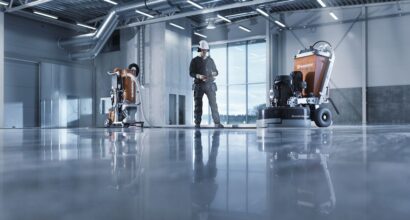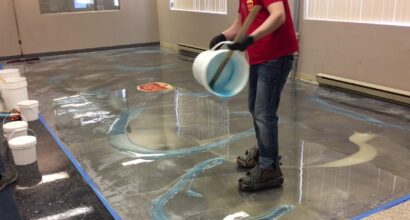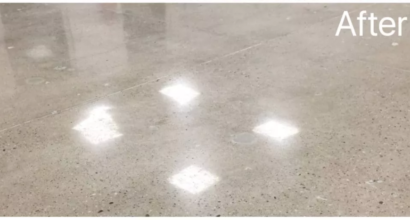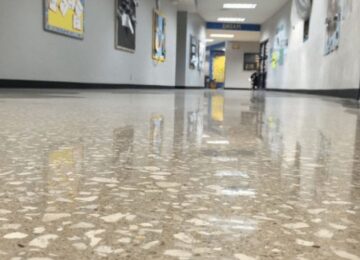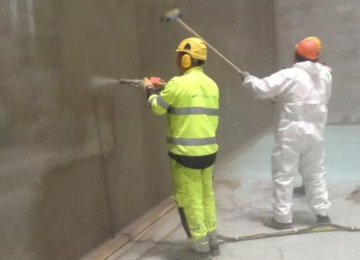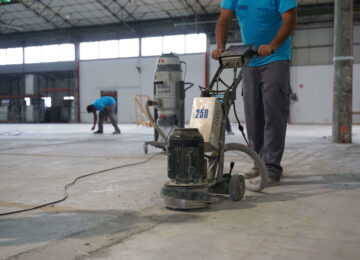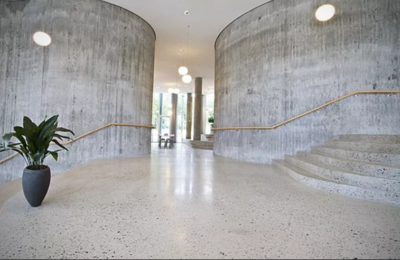Floor Hardener
A concrete hardener or densifier is added to the finished concrete floor's surface to prevent excessive chipping and cracking. When applied correctly, a hardener can prevent the flooring from getting damaged. These products can strengthen, preserve, and protect concrete surfaces through a uniform sealing and curing process.
A hardener is a transparent and permanent seal that protects the concrete from grease, salt, oil, water, and other contaminants and chemicals. Plus, adding a concrete hardener to the floor will prepare the surface for different floor coverings such as paint, epoxy, or adhesives. Freshly poured concrete is more resistant to deterioration, warping, and curling with an added hardener. A concrete hardener can also be applied to existing concrete after proper preparation.

